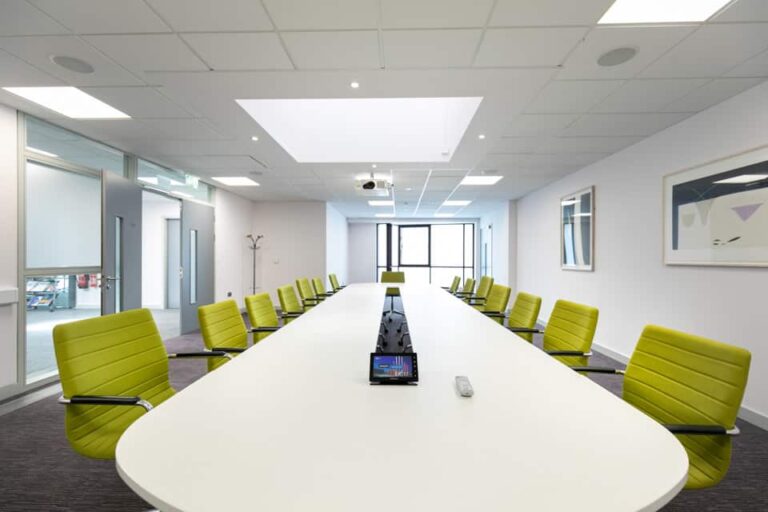Conferences and events provide an excellent opportunity to network and make valuable connections with people from various industries and backgrounds. These connections allow you to expand your professional circle, as well as exchange knowledge and ideas.
Here are our top five tips for networking at events:
1. Preparation is Key
It is true what they say… fail to prepare, prepare to fail.
It is essential to prepare before a conference. Do some research about the speakers, topics that will be discussed and other attendees before the day of the event.
Becoming familiar with the topics will allow you to ask valuable questions.
By finding out who else will be at the event, you can predetermine if there is anyone you might want to reach out to on the day.
Top Tip: Always remember to check the dress code. Your appearance impacts people’s first impressions of you. Dressing appropriately at an event allows you to present yourself and your organisation as a professional.
2. Confidence
The pandemic had a serious impact on our interpersonal communication skills. For many people attending a conference in person is still very intimidating. It’s important to remember you are all in the same boat and that nobody is judging you.
A useful tip to alleviate some of this anxiety and to be confident enough to open a conversation is to prepare a short piece on who you are, where you work and why you decided to attend this event.
This is a fantastic way to open a conversation and get to know other attendees- think of it as your elevator pitch.
It’s also important to take small breaks to recharge your social batteries. By going on a short walk to a quiet place you can gather your thoughts, refocus and recharge your energy.
3.Active Listening
We often spend time thinking about our agenda, being distracted by our phones or worrying about what we should say next in a conversation. This passive listening style leads to poor-quality conversations.
What Exactly is active listening? Active listening is the ability to focus entirely on the speaker with the sole intention of understanding their message.
By listening to others, you will become more immersed in a conversation and will likely learn and exchange interesting ideas.
This may take work and is a skill you need to practice. Some valuable tips for actively listening include paraphrasing others in your response, nodding or making gestures to show you are engaged and removing distractions, for example, turning off your phone.
By being present and actively listening to other event attendees you can build genuine and honest connections with others.
4.Time
Networking events can be very hectic. It’s important to be mindful of your own and other people’s time. Avoid holding someone’s attention for too long as all attendees will have goals for the evening and may wish to speak to someone else.
If a conversation is going well but has run its course, you should be polite when trying to finish the conversation. You can show engagement by asking them to follow up with you on a discussion or by letting you know how their project turned out. Remember to get their contact information!
5. Leveraging social media
After you have formed a connection at an event, you may be wondering how to continue the relationship. LinkedIn is a useful tool that can be used to stay connected after the first meeting.
By connecting with others on LinkedIn, you can keep in touch and learn about their new projects and can continue to develop your professional relationship.
If you have promised to provide someone with information on a specific topic it’s important you follow up on your offer, this shows reliability and integrity.
The LinkedIn messenger feature is a fantastic way to do so, and it allows the conversation to continue and offers further opportunities for collaboration.
If you are looking for a conference or event venue, check out Meet In DCU. We have a wide range of meeting, conference and event spaces that are customisable to small seminars to full-scale conferences.
Contact our events team to learn more about organising your event.





